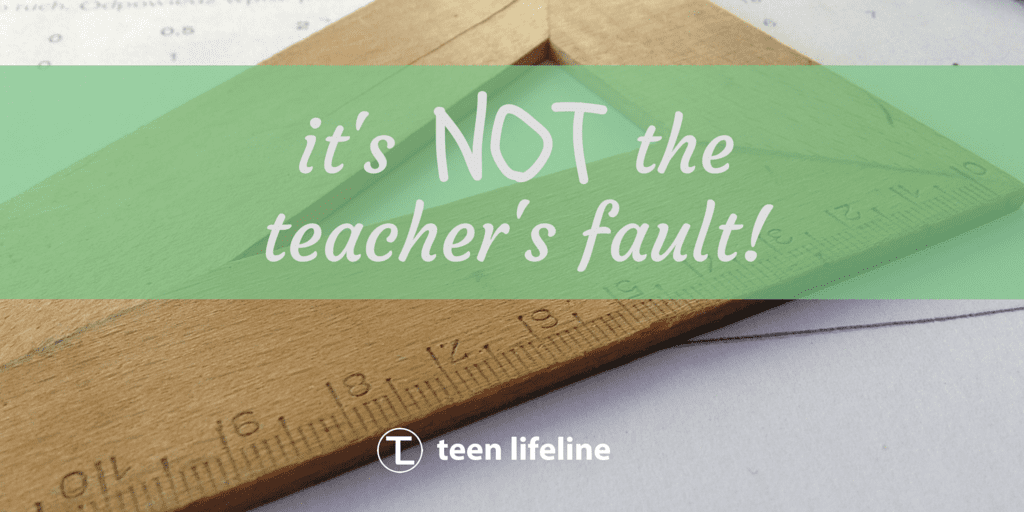
It’s Not the Teacher’s Fault
I can’t tell you how many times I have heard this. Mainly from students but also from parents who see the teacher as the problem in a particular class. I have to admit, I have even said the same thing when I was in school.
Even though this is an easy thing to fall back on, I have never felt comfortable (and the more I work with teachers and schools, I feel less and less comfortable) with this mentality. The problem has been that I didn’t know how to process this mentality in order to make it better, much less how to communicate to people how they too could shift their perspective, stop blaming and start making positive progress.
That is until recently. I just finished a book called Extreme Leadership. It is a business book, but the last principle they talk about in the book helped me begin to clarify why the idea that the teacher is the problem doesn’t compute for me, and I hope it won’t for you either.
In my experience talking with and dealing with teachers, they are smart people. They have put in hard work in school and the teaching exam in their state. Not to mention, they are often under paid but put in extra work so that the students they work with get the education they need. That being the case, I have not met a teacher who wants students to fail. If for no other reason, they don’t want a difficult student in their class a second time! But mainly because if they fail students, it is a reflection on them. I don’t mean to be naive here, I know there are some teachers out there that are in it for the wrong reasons, but they are the minority by far.
If we see it from this perspective, then what do we do when our student is falling or struggling with a particular subject or class? I believe the principle that is outlined in Extreme Leadership helps point us in the right direction.
This principle is the idea of leading up and down the chain of command. In the military, this means that subordinates must learn to lead up to their commanders in appropriate, helpful ways. The most clear definition of this is that if a group leader has been tasked with a mission, it is up to him to make his commanding officer(s) aware of the resources he needs to carry out that mission. If the commanding officer has to ask for more information, it is because the squad leader did not provide enough information to begin with.
An application to a student-teacher relationship looks very different, but it’s not about the details of the situations. It’s about the principle that makes this work.
If a student is failing, it is because there is a lack of understanding on the student’s part as to the requirements of the task or the details of the lesson. Because teachers make the lesson plan and have their own way of learning things that drives how they teach, a student may need to get creative in how they ask for clarification. So it is up to the student (and a parent helping them) to get creative in how they seek help from the teacher. The hope is that they help the teacher give them the information they need by being very clear on what is not making sense to them.
I do understand this sounds like a backwards approach. Isn’t it up to the teacher to be clear, teach, and make sure that students get the lesson they need? Well, yes, but this is about more then one class or lesson. This is about learning more than a subject; it is about learning how to deal with people, to expand your brain power to think about how you can contribute to the solution instead of focusing on the problem.
What would happen if you shifted your perspective to one that says, “I’m going to own the problem and find a solution.” rather then “It’s the teachers fault!”? What ideas do you have for dealing with difficult people or situations that are different then our reactionary response?
Ricky Lewis is a long-time supporter and friend of Teen Life. He was the Executive Director for many years and continues to be an asset to our community. As a father of 7, he seeks to help parents and their kids Live Life Better.